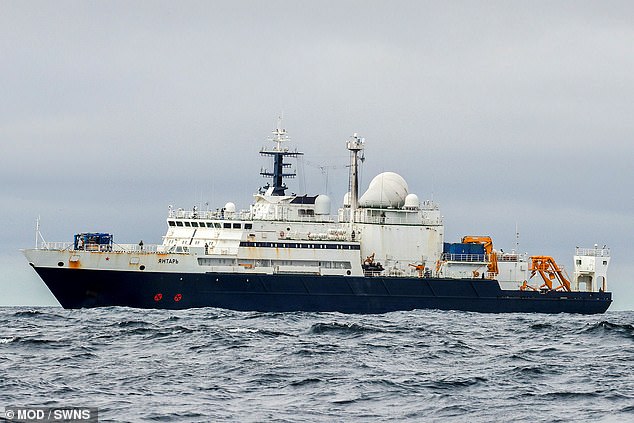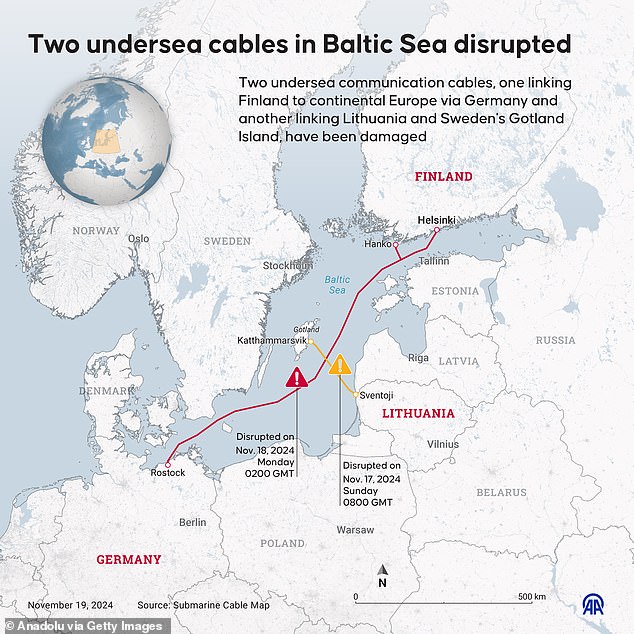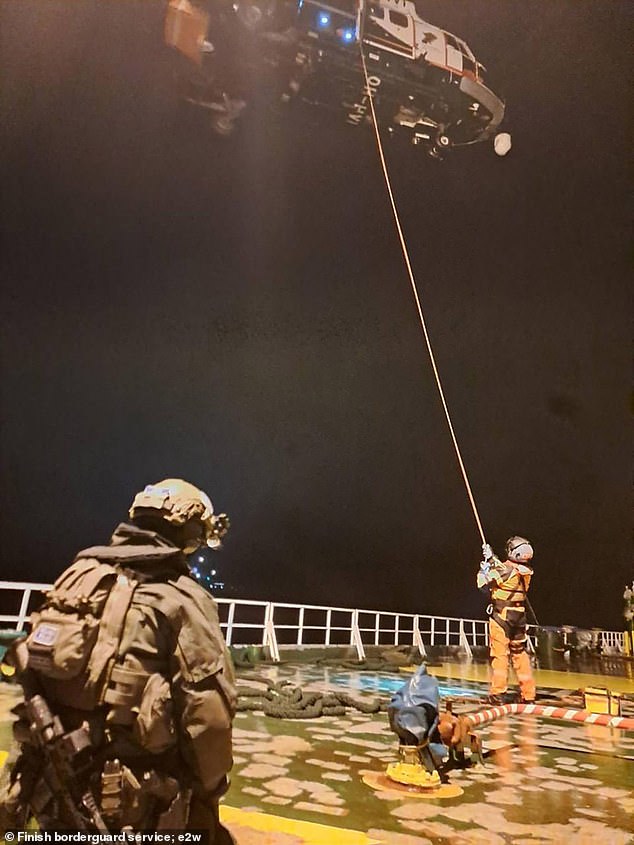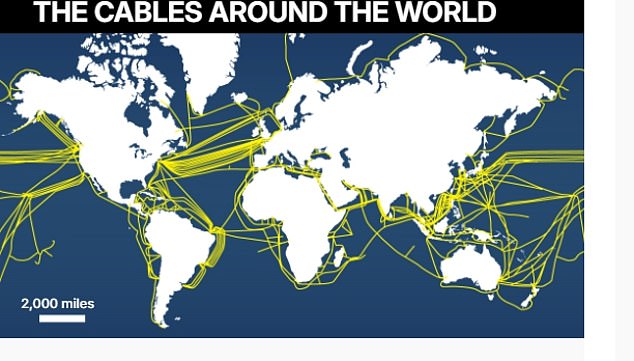Britain’s network of undersea cables which connect the UK with the world are at risk of a ‘catastrophic attack’, MPs have warned.
Their report released on Thursday said they are ‘not confident’ this country could prevent the sabotage of its communication and internet links.
These cables on the sea and ocean beds are being surveyed by Russian ships and could be attacked at a time of war.
According to the National Security Strategy Committee, the UK’s military is ‘too timid’ defending pipelines and must adopt a ‘muscular’ approach.
Otherwise, state actors such as Russia, or terror groups could cause ‘catastrophic disruption’ to the UK’s economy and people’s daily lives.

Russian spy ship the ‘Yankar’ was spotted lurking off the UK coast in 2018 near vital undersea communication cables

Russia is thought to be behind attacks on cables at the bottom of the Baltic Sea in 2024

Finnish police seized a Russian-linked shadow fleet tanker suspected of involvement in the plot to sever power cables in the Baltic

Russian President and former KGB chief Vladimir Putin is thought to be behind the Kremlin’s plot to damage cables in the North Sea, the North Atlantic and the Baltic
UK offshore cables are ‘sufficiently vulnerable to make them a target’ for Vladimir Putin if he ramps up his tests of NATO‘s resilience.
The report comes after Russia invaded NATO airspace over Poland last week, sending unmanned drones more than 100 miles into the country.
Around 50 data cable systems on the sea and ocean bed connect Britain to the world. The UK is almost entirely reliant on this network for data transmission.
The committee said that, to date, security preparations for the network are ‘inadequate’.
They said: ‘Given the deteriorating security environment and the UK’s growing military role in Europe, we can no longer rule out the possibility of UK infrastructure being targeted in a crisis.
‘We are also not confident that the UK could prevent such attacks or recover within an acceptable time period.
‘Undersea cables are the invisible backbone of the internet. Everything from everyday WhatsApp messages to financial transactions worth billions of dollars are carried through this network. The scale of the UK’s strategic reliance needs to be taken more seriously.

Undersea cables carry the world’s communication links which could be paralysed by Russia an China
‘While our national connectivity does not face immediate danger, we must prepare for the possibility that our cables can be threatened in the event of a security crisis.
‘Putin has shown every sign of wanting to test the soft underbelly of the NATO alliance. Our cables are sufficiently vulnerable to make them a target.
‘Competent and farsighted preparation is essential. The past 25 years show that unlikely events can happen with surprising speed and frequency. Unintended escalation is a particular concern given events in Ukraine. The Government must raise its gaze.’
The cables carry the data that power our economy, everyday communications and critical services.
The trend towards critical amounts of data being concentrated in new high-capacity cables will create a small set of high-value targets, the report warns.
MPs are calling for speedier repairs of cables, more military exercises to practice protecting cables, legal changes to introduce tougher penalties for malicious damage and new integrated monitoring and alert systems to improve early warning and vessel interception.
Subsea telecommunications cables run for thousands of miles across the world, connecting countries in a system that constitutes the backbone of the global internet.
These cables are typically run by private businesses and carry everything from financial transactions worth trillions of dollars to WhatsApp messages.
Around 570 cables (plus a further 80 planned) carry between 95 and 99% of the world’s intercontinental telecommunications data.
Satellites can typically handle only circa 5% of subsea cable data capacity.
Subsea cables generally connect to national data infrastructure via landing stations. These are small hubs on the coastline which process and feed the cable data onwards into a country’s terrestrial network.
As an island the UK is almost entirely reliant on subsea cables to transmit the data connecting it to the outside world. The UK also acts as a key onward transit route for transatlantic cables.












